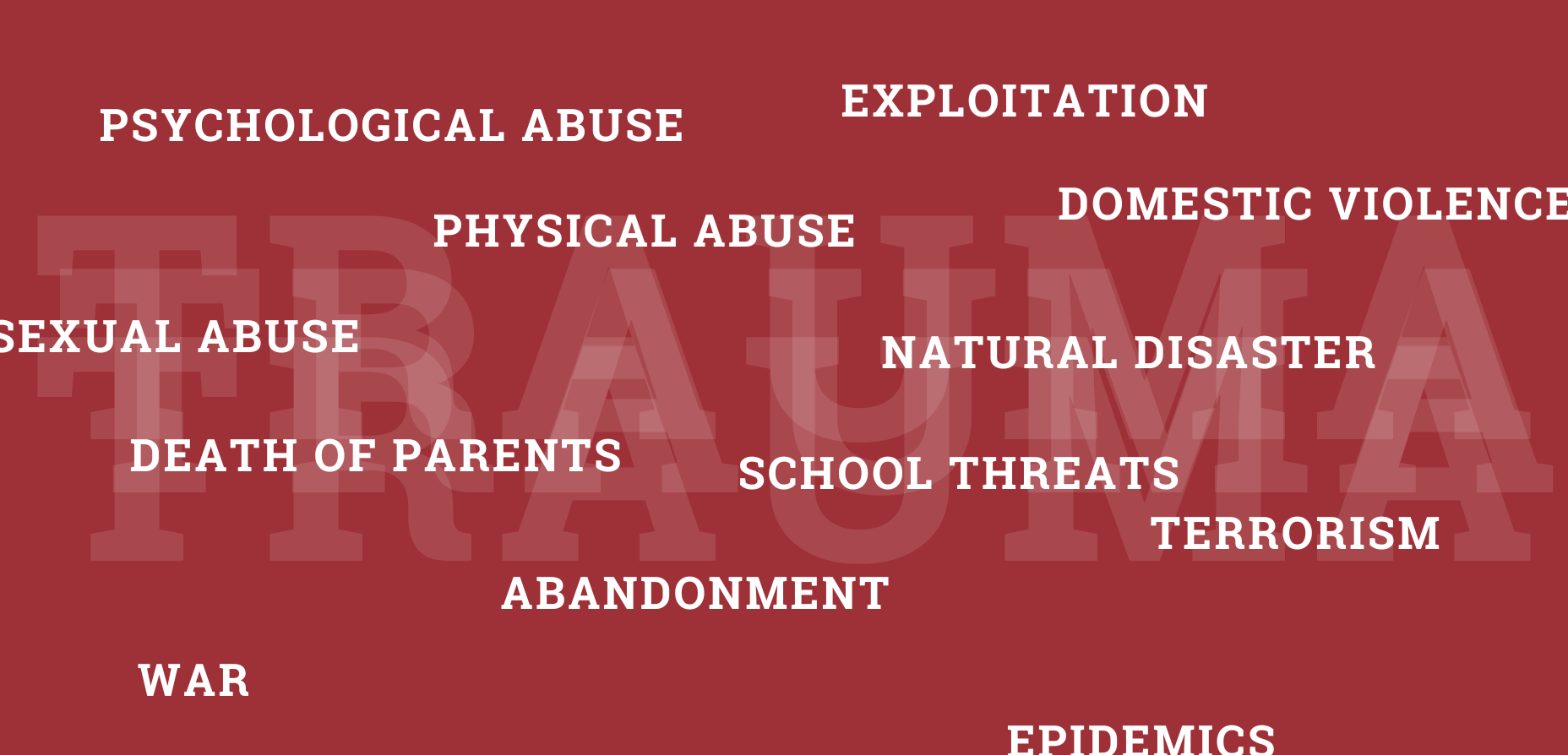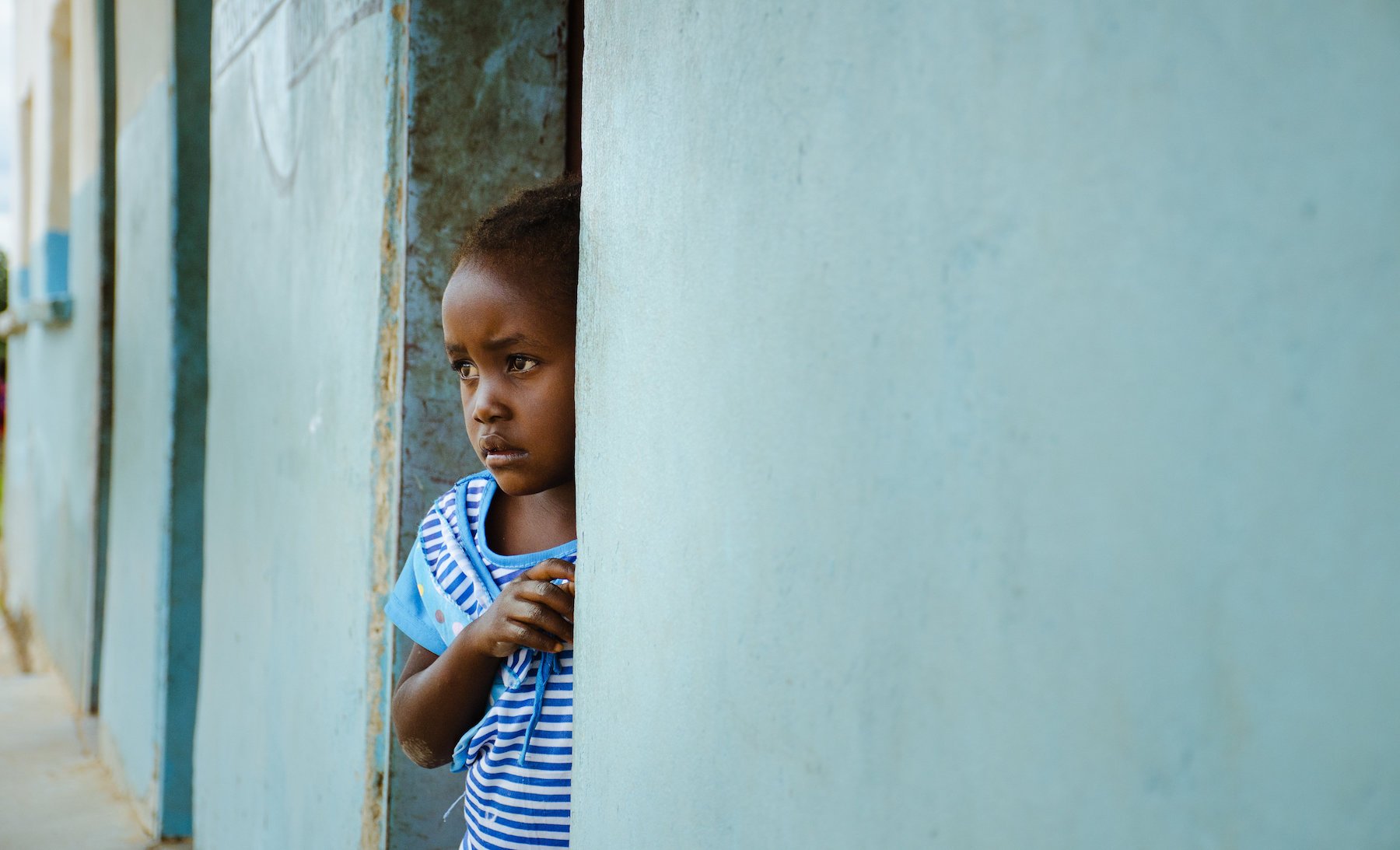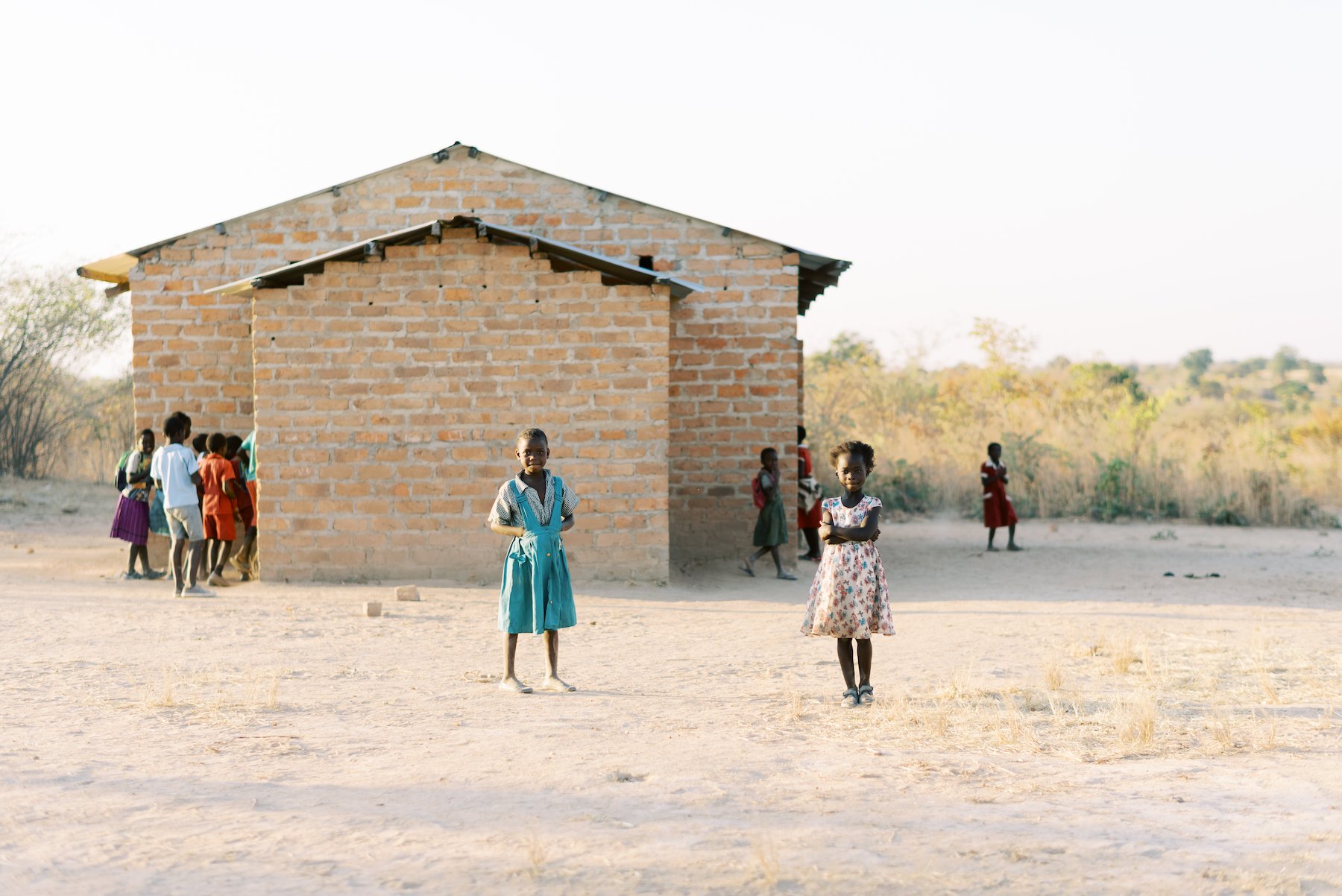
WHY TRAUMA
More than 2/3 of Children
suffer a traumatic event before age 16.


SUFFERING THAT CAN LAST A LIFETIME
Stress and trauma present mental health risks whenever they occur. However, when they occur early in life, stress and trauma can activate responses with biological and mental health consequences that can last a lifetime.
-UNICEF

TRAUMA IMPACTS EVERYTHING
MIND
Trauma can disrupt healthy development of neural pathways. Difficulty with attachment, cognitive delays and impaired emotional regulation are just some of the effects.
BEHAVIOR
Children with trauma history may be easily “triggered” and are more likely to react intensely. They may struggle with self-regulation, lack impulse control, and demonstrate a host of other challenging behaviors.
EMOTIONS
Children who experience trauma often believe they are to blame. They are likely to view themselves as “damaged” and perceive the world as meaningless. Many fear that God is like the adults who hurt them.
GENETIC EXPRESSION
Trauma can change genetic expression. If a child born with a genetic make-up to be tall and confident is abused and neglected, her genes may “turn off” causing her to be stunted and fearful.
BODY
Ongoing trauma overloads the body with cortisol and adrenaline. This can weaken the heart, lead to diabetes, disrupt the immune system and can change the actual structure of a child’s organs.
WHO SUFFERS?
More than half of all children in Africa experience physical abuse. In some parts of the continent, 4 out of 10 girls suffer sexual violence before the age of 15.(source)* African Partners to End Violence against Children.
Sub-Saharan Africa has both the highest rates of children living in extreme poverty at 45.8 percent and the largest share of the world’s extreme poor children, at 65.8 percent.
Child poverty is more prevalent in countries prone to conflict. About 41.6 percent of children who live in fragile and conflict-affected countries live in extremely poor households, compared to 14.8 percent of children in other countries.
Children in low and middle income countries as well as refugees are at an extremely high risk of facing compounded trauma, yet their caregivers often lack support and resources that promote resilience and recovery are rare.
THE DIFFERENCE ONE PERSON CAN MAKE
The latest research from the world’s leading institutions have found one primary factor can foster Freedom from trauma’s devastating impact.
“The single most common factor for children who develop resilience is at least one stable and committed relationship with a supportive parent, caregiver, or other adult.” -Harvard’s Paper on Resilience.
Therefore, “Supporting parents and caregivers is essential to building child and adolescent well-being and to reducing and preventing violence against children. Stable relations at home can help protect children against toxic stress and promote resilience and overall well-being.” -UNICEF
MAKE A DIFFERENCE
HOW DOES RIVERCROSS TACKLE THE TRAUMA CRISIS?
Through our training we:
Promote responsive caregiving and nurturing connections that leads to better care for children.
Inspire sustained Christlike compassion so that hearts are turned toward the children..
Grow knowledge and skills that enable caregivers to strengthen resilience and advance trauma healing .
Increase confidence so that adults know what to do in their interactions with vulnerable children.
Inspire action that results in children being better protected, rescued when necessary, and restored when the unthinkable happens.
Register for the next ENGAGE GROUP where you will learn more about the problem, how RiverCross solves it, and consider how you can MAKE A DIFFERENCE.






